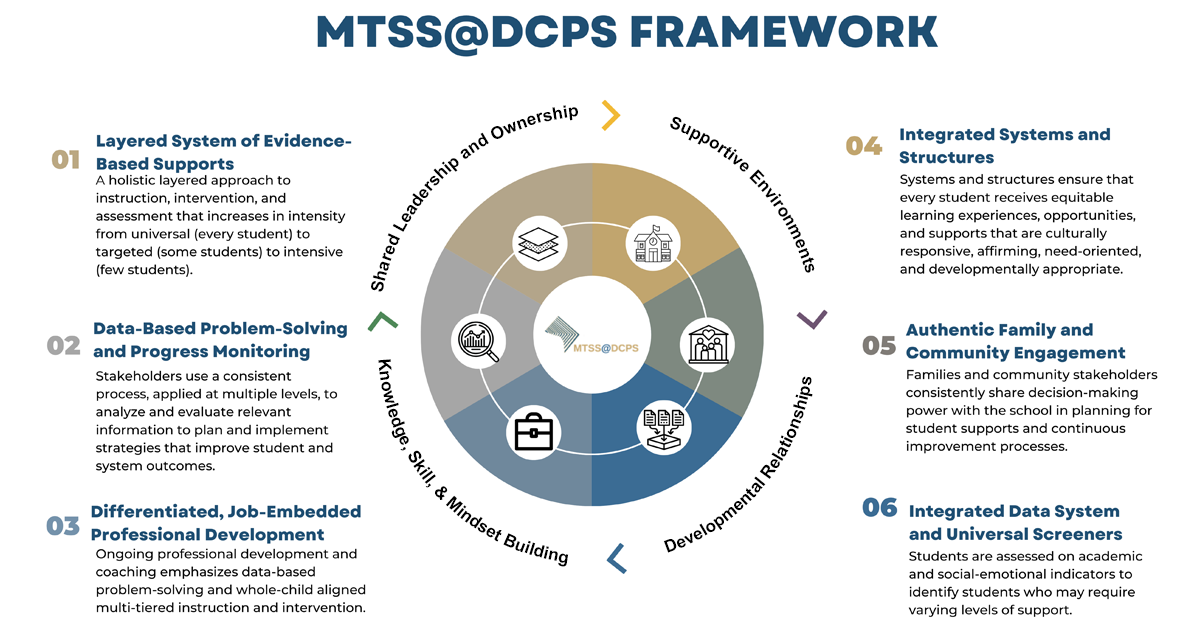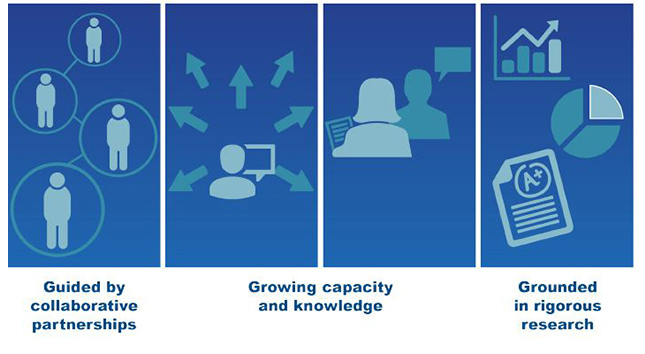The District of Columbia Public Schools (DCPS) is actively working to promote equity, inclusivity, and the overall well-being of our students. We’re implementing multi-tiered systems of support (MTSS), an evidence-based, three-tiered framework of instruction, intervention, and assessment that educators can use to identify and address the diverse needs of learners in a systematic manner (Sailor et al., 2021). MTSS support tiers increase in intensity, from universal (for all students), to targeted (for some student groups), to intensive (individualized for a few students). Like most MTSS frameworks, MTSS@DCPS focuses on building integrated systems that support the whole child—that is, addressing the academic, social-emotional, and behavioral needs of each student.
We build the capacity of educators to make informed decisions based on ongoing assessments and progress monitoring.
Effective use of data allows us to identify students who need support and intervene early using evidence-based and culturally responsive methods, promoting more equitable outcomes. Assessments and progress monitoring may vary depending on the grade level and content areas, but the underlying practices remain consistent.
For individual students, MTSS collaboration teams consist of people who interact with students regularly, such as school or grade-level instructional and support staff and occasionally family members or other external partners. The teams use a combination of formative and summative assessments to evaluate progress. For example, in middle school math, the team reviews i-Ready math diagnostics as an initial screening tool. These data are supplemented with course grades, weekly quizzes, attendance, behavior and social-emotional learning data, and observations to provide a holistic view of the student’s strengths and needs. Interventions tailored to the student’s needs are collaboratively developed by the team, which meets every 6-to-8 weeks to discuss the student’s progress.
At the school level, separate MTSS collaboration teams—consisting of teachers, administrators, school instructional leaders, and school psychologists—follow a similar process. They use data, such as test scores, social-emotional learning data, and student behavior data, to identify challenges that apply to the entire school. A thorough analysis of schoolwide challenges is crucial in forming a comprehensive understanding of student needs, especially in identifying any disparities among different demographic groups. With this holistic perspective, school leaders can identify schoolwide interventions that target specific student outcomes.
Continue reading on the REL Mid-Atlantic blog.



